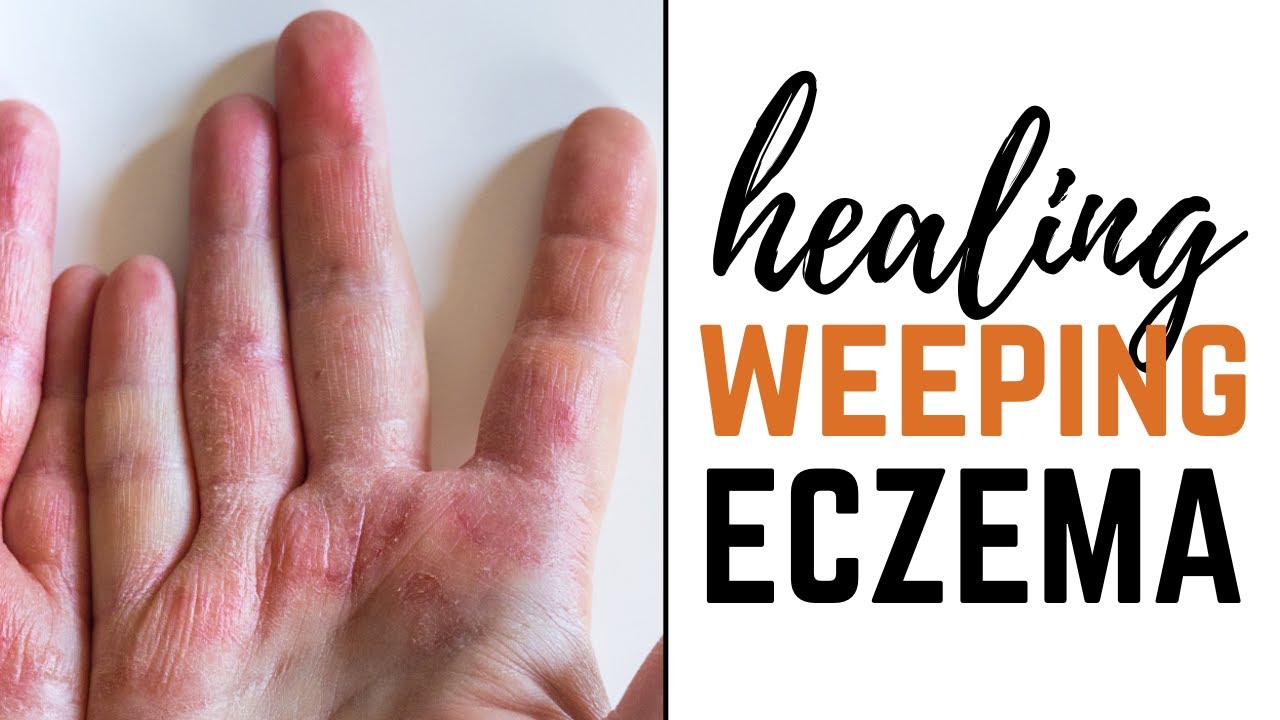Weeping Eczema: A Comprehensive Guide
Weeping eczema can be a challenging and uncomfortable skin condition. It’s essential to have a comprehensive understanding of this condition, its causes, and how to manage it effectively. In this guide, we’ll delve into the world of weeping eczema, offering insights into its symptoms, triggers, and treatment options. Whether you’re experiencing it yourself or supporting someone who is, this article aims to provide clarity and guidance.
What is Weeping Eczema?

Weeping eczema, also known as “eczema craquele” or “dyshidrotic eczema,” is a specific type of eczema characterized by small, fluid-filled blisters that can ooze and lead to crust formation. This condition is often intensely itchy and can cause significant discomfort. To understand it better, let’s explore its causes, common symptoms, and the factors that trigger flare-ups.
Recognizing Weeping Eczema Symptoms
Weeping eczema manifests through a range of noticeable symptoms. Being able to identify these symptoms is crucial for early intervention and management. Common signs of weeping eczema include redness, intense itching, blisters that ooze and form crusts, and a burning sensation. Let’s take a closer look at these symptoms and why they occur.
Causes and Triggers
Understanding what causes and triggers weeping eczema is fundamental to managing the condition effectively. While the exact cause isn’t always clear, factors such as genetics, allergies, and environmental elements can play a significant role. we’ll delve deeper into the common causes and triggers that contribute to weeping eczema flare-ups.
Diagnosis and Medical Assessment
If you suspect you have weeping eczema, seeking a proper diagnosis is crucial. In this section, we’ll explore the diagnostic process, which typically involves a thorough evaluation by a healthcare professional. They may perform visual examinations, and skin tests, and discuss your medical history to confirm the presence of weeping eczema
Treatment Options
Managing weeping eczema effectively requires a combination of treatment approaches and strategies. In this section, we’ll explore various treatment options, including topical creams, ointments, lifestyle changes, and natural remedies. These approaches aim to alleviate symptoms, reduce itching, and promote skin healing.
Living with Weeping Eczema
Coping with weeping eczema can be challenging, but some strategies and tips can help improve your quality of life. In this section, we’ll explore coping mechanisms, including skincare routines, dietary considerations, and ways to minimize triggers. By implementing these strategies, you can enhance your overall well-being while managing the condition.
Prevention and Outlook
Preventing weeping eczema flare-ups is a key goal in managing the condition. In this section, we’ll discuss preventive measures and strategies for minimizing the frequency and severity of flare-ups. Additionally, we’ll provide an outlook on living with weeping eczema, emphasizing the importance of long-term skin health.
FAQs about Weeping Eczema
Q: Is weeping eczema contagious?
A: No, weeping eczema is not contagious. It is a skin condition triggered by various factors, including genetics and environmental elements.
Q: Can I manage weeping eczema at home without medical treatment?
A: While home care can help, it’s essential to consult a healthcare professional for a proper diagnosis and treatment plan. They can provide guidance tailored to your specific condition.
Q: Are there any specific dietary changes that can help with weeping eczema?
A: Dietary changes may be beneficial for some individuals with eczema. It’s best to consult with a dermatologist or allergist to identify potential food triggers and make informed dietary choices.
Q: How long does it take to see improvement with treatment?
A: The timeline for improvement varies from person to person. It may take several weeks to months to notice significant progress. Consistency in treatment and preventive measures is key.
Q: Can stress worsen weeping eczema symptoms?
A: Yes, stress can exacerbate eczema symptoms in some individuals. Managing stress through relaxation techniques and stress-reduction strategies may help.
Q: Are there specific products or ingredients to avoid with weeping eczema?
A: Harsh soaps, fragrances, and certain chemicals can irritate eczema-prone skin. Opt for gentle, fragrance-free skincare products and avoid known triggers.
Q: Is there a cure for weeping eczema?
A: Currently, there is no cure for eczema, but effective management and treatment can significantly reduce symptoms and improve quality of life.
Q: Can weeping eczema affect people of all ages?
A: Yes, weeping eczema can affect individuals of all ages, from infants to adults. Management approaches may vary by age and severity.
Q: Is there a link between weeping eczema and allergies?
A: Allergies can play a role in some cases of eczema. Allergy testing may be recommended to identify potential triggers.
Q: How often should I follow up with a healthcare professional for weeping eczema?
A: Regular follow-up appointments are essential, especially during the early stages of treatment. Your healthcare provider will determine the appropriate schedule based on your condition.
Conclusion
In conclusion, weeping eczema is a manageable condition with the right knowledge and strategies. By understanding its causes, recognizing symptoms, seeking a proper diagnosis, and implementing effective treatment and prevention, individuals can take control of their condition and improve their quality of life. Remember that you’re not alone on this journey, and seeking support from healthcare professionals is essential for optimal management.




